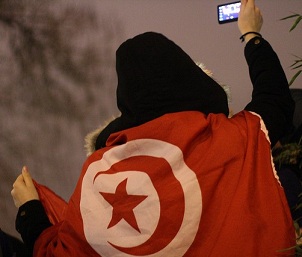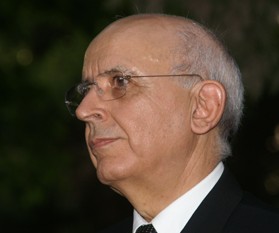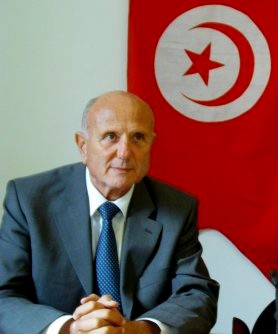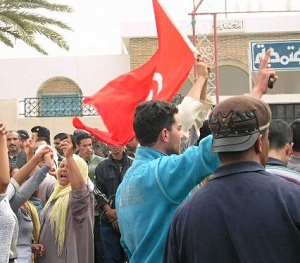|
Tunisia Society | Politics Who will rule Tunisia?
Mohamed Ghannouchi, Prime Minister under ex-President Zine al-Abidine Ben Ali, was the first to take on power as massive protests on Friday caused President Ben Ali to flee the country. Presenting himself as "interim President", Mr Ghannouchi however lacked popular support.
The leading opposition figure seems to be Ahmed Najib Chebbi, leader of the Democratic Progressive Party that has been legal but marginal since 1988, at least according to official results. Mr Chebbi was barred from running as a presidential candidate in 2009 and has been able to keep enough distance to the Ben Ali regime to maintain credibility. But as the national press was obliged to ignore the opposition, Mr Chebbi is not well known to the public. A driving opposition force in neighbouring North African countries, the Islamists, was and is outlawed in Tunisia. The Islamist movement, which could potentially become forceful in a democratic Tunisia, therefore is not well organised and is not invited to the coalition talks. Also the Communist Party is outlawed and excluded. Among the large exiled Tunisian community, hopes are rising they can now play a central part in a democratic revolution. In Paris today, exiled centre-left opposition leader Moncef Marzouki told the French press he would stand candid
Mr Marzouki announced he would be returning to Tunis tomorrow, Tuesday, to participate in the preparations of the elections. The leader of the banned and exiled party Congress for the Republic became famous as a human rights activist, was imprisoned several times and fled to France in 2002. Among the majority of Tunisians, Mr Marzouki's fame however is limited. Meanwhile in Tunisia, the violent protests have continued. Both criminals and ordinary people have abused the situation to participate in widespread looting. In several Tunisian cities, the situation is lawless and dangerous. Most Tunisians by now seek a normalisation of the situation. Most shops have been closed since Thursday evening and people are running out of daily consumer goods. Many have not dared to leave their homes for days, fearing to get trapped in the clashes or attacked by criminals. Today, some shops are reopening in urban areas controlled by the armed forces. A strongman, maybe from the armed forces, therefore could emerge and get some sympathy if able to reintroduce law and order. While the protesters have attacked police f
The armed forces are already increasing their popularity as they are securing the property of people in the parts of urban centres they control and help ordinary citizens get back to normality. Also, the military has not been involved in the fighting between protesters, the police and the presidential guard. Rumours in Tunis have it, army chief General Rachid Ammar plaid an essential role in ousting President Ben Ali by saying he could not count on the armed forces' support. The General is frequently mentioned as a possible and popular strongman that could take on power if the civilian government fails to get control over the situation. Meanwhile, Prime Minister Ghannouchi this evening appointed an interim government, where the old RDC ruling party maintained all key ministerial positions, including the interim President, the PM and ministers of the Interior, Finance, Defence and Foreign Affairs. Few observers believe this new Ghannouchi government will be able to survive the next few days. By staff writers © afrol News - Create an e-mail alert for Tunisia news - Create an e-mail alert for Society news - Create an e-mail alert for Politics news
On the Afrol News front page now
|
front page
| news
| countries
| archive
| currencies
| news alerts login
| about afrol News
| contact
| advertise
| español
©
afrol News.
Reproducing or buying afrol News' articles.
You can contact us at mail@afrol.com











